German Chancellor Olaf Scholz has traveled to South America. But not only the Ukraine war accompanies him there, but the geopolitical competition with China, too. His interlocutor Luiz Inácio Lula da Silva, former and new president of Brazil, not only pitched himself and China’s President Xi Jinping as peace brokers with Moscow. He also has an almost outdated optimistic view of the People’s Republic, as Amelie Richter analyses. But China has long since been more strategically independent of individual South American states than it was during Lula’s first presidency.
Taiwan has a new cabinet: The new Prime Minister Chen Chien-jen took office on Tuesday, and along with him some new government members, but mostly familiar faces. Central ministers such as Joseph Wu in the foreign office have kept their posts. This means that Chen Chien-jen promises continuity above all, as David Demes analyzes. Chen is also signaling a sign of stability to international allies.
China has been promoting key sectors and innovations for years. A new study by the Berlin-based China Research Institute Merics, which China.Table has obtained in advance, has analyzed exactly how this is done. Finn Mayer-Kuckuk took a closer look at the study. The study shows that China organizes innovation along chains, where ideas, research results and concrete technologies are forwarded. The focus is on application-related projects that, in the best case, yield something useful.
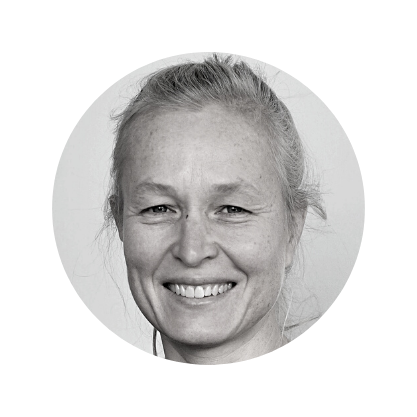
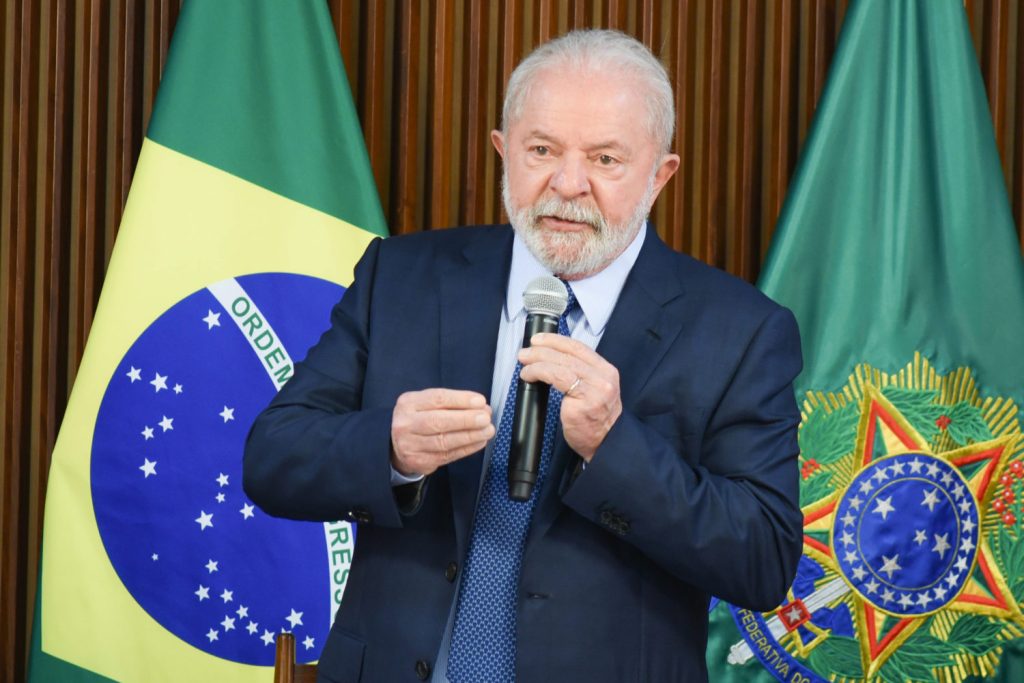
German Chancellor Olaf Scholz did not expect this move: Brazil’s President Luiz Inácio Lula da Silva has proposed a mediation initiative of his country together with China for an end to the Ukraine war. The left-wing politician offered himself as a mediator for talks with the Ukrainian or Russian president. Or even with China. “Our friends, the Chinese play a very important role,” Lula said at a joint press conference with German Chancellor Olaf Scholz in Brasília. “It’s time for China to get involved.”
The fact that Beijing has not displayed any tendencies to take a mediating role in the war against Ukraine, which has been raging for almost a year now, does not seem to bother Lula in his appeal. France’s President Emmanuel Macron also suggested the People’s Republic of China as a mediator after the G20 summit in Bali and received scorn for this. However, France and Brazil have different approaches toward China.
Lula considers China to be the same partner as it was during his first term in office, which began two decades ago. From 2003 to 2011, Lula was head of the Palácio do Planalto in Brasília. At that time, the Workers’ Party icon was still dealing with Hu Jintao as China’s head of state. So if the “BRICS buddy” Lula now calls on Beijing to act as a mediator, this might at first glance seem more pressing than a voice from the West like Macron. However, Lula could be sorely mistaken about Beijing. Times have changed, both in terms of trade policy and diplomacy.
Xi no longer has to fight the same diplomatic battles in Latin America as he had to a decade ago. Until recently, 15 of the 30 countries in Latin America and the Caribbean had officially recognized Taiwan as an independent country. Now, after years of Beijing’s charm offensive, only 8 countries remain. China has forged free trade agreements with Chile, Costa Rica, Panama and Peru; more than 20 Latin American and Caribbean countries have joined the Belt & Road Initiative (BRI). China’s economic and geopolitical influence in the region has been cemented; Beijing no longer needs to court Brazil.
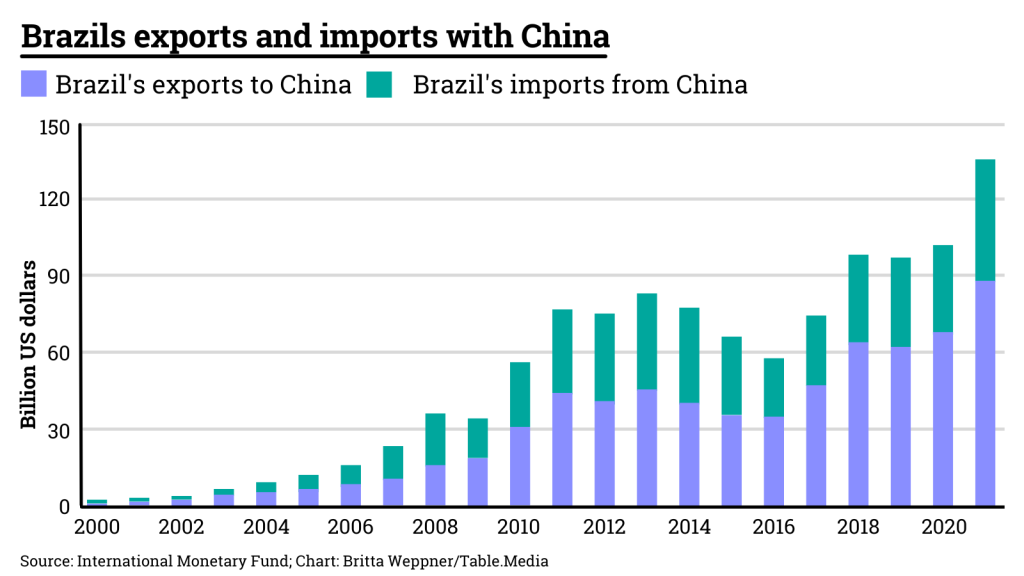
During Lula’s first term in office, he saw China as an equal partner: Two countries on the fringes of Western-dominated institutions. He was instrumental in founding the BRICS group in 2006, which also includes India, Russia and South Africa. At the end of Lula’s first presidency in 2011, trade between Brazil and China had grown from practically zero to almost $60 billion. China already became Brazil’s most important trading partner in 2009.
And it continued to go uphill. In 2021, the combined value of products exported from Brazil to the People’s Republic alone reached more than $87 billion, an increase of around $20 billion compared to 2020. The number one product: soybeans. Brazil’s top import product from China is mobile phones.
There were some diplomatic strains with Bolsonaro during the Covid-19 pandemic – but they did not negatively affect economic relations. “Both Brazilian and Chinese business people are very pragmatic,” says Brazilian China consultant Thais Moretz. As a matter of fact, Brazil’s exports to China have registered record figures in recent years.
For now, the first days of the ‘second round’ government of President Lula da Silva do not show many changes in his rhetoric compared to the first term, says Moretz, who herself lived in China for several years and now advises Brazilian companies and government agencies. Diversifying exports from Brazil to China, but more technology from China to Brazil – it’s basically the same President Lula da Silva already said almost two decades ago, Moretz explains.
Not the best strategy in her opinion: “I think President Lula da Silva needs to renew his agenda. A lot has changed in these 20 years. I also don’t see the diversification of exports on a business level, especially when it comes to consumer goods.” Moretz explains that Brazilian companies are increasingly producing these directly in China and not exporting them.
Restructuring and expanding the export basis is difficult in general, especially for small and medium-sized Brazilian companies. These companies are lacking the necessary tools for competitiveness. Brazilian brands find it harder than European brands to survive the Guochao (国潮) wave. “The European brands are well known and desired by the Chinese people. But that’s not the case for Brazilian consumer goods,” Moretz says.
However, the main point of discussion these days for Europe is decoupling, whereas it is not a priority for Brazil. The country is much less dependent on just one country for precursors, Moretz explains. Though, she adds that Brazil should pay closer attention to the increasing dependence on the Chinese tech sector.
The free trade agreement between the EU and the Latin American Mercosur countries could help Brazil in this regard. Last week, Lula stressed that he wanted to strike a deal with Europe first and then negotiate a Mercosur-China trade agreement. During his visit, Chancellor Scholz reiterated his wish for a quick ratification of the agreement. He explained that Lula and he agreed that this agreement should be signed quickly. In the meantime, the Mercosur member state Uruguay is already negotiating a bilateral free trade agreement with China. Much to Lula’s displeasure.
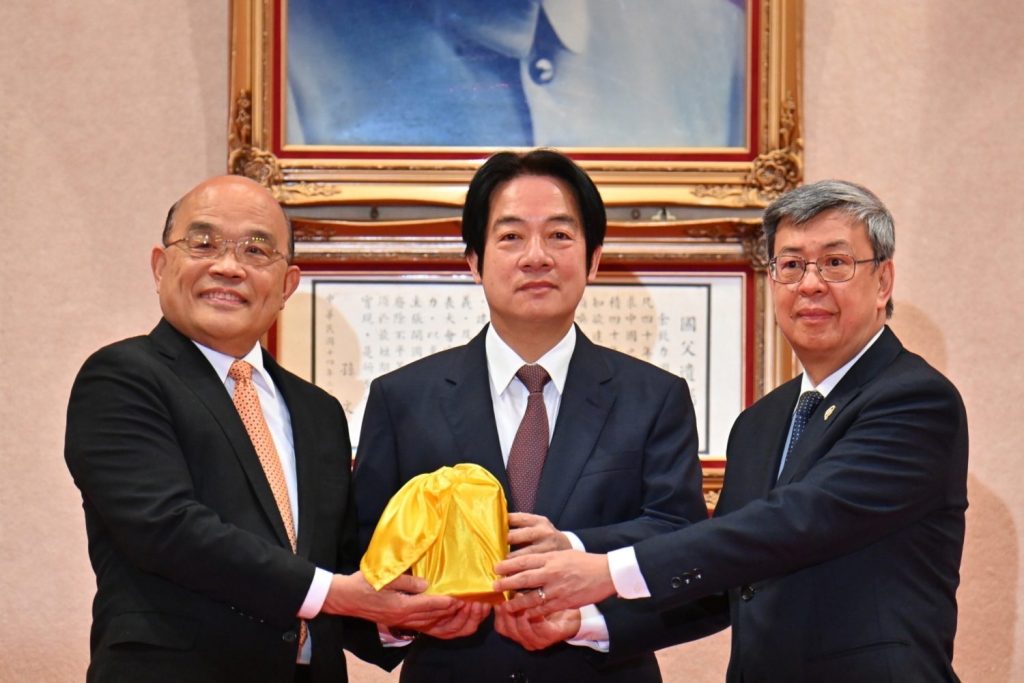
Following the poor results of the Democratic Progressive Party (DPP) in the local elections at the end of November, besides resigning from the post of party chair, the pressure on President Tsai Ing-wen to make a fresh start with Taiwan’s new cabinet had been growing. After all, it is a tradition in Taiwan that the government takes political responsibility and the cabinet resigns after election defeats. On Friday, Tsai already presented former Vice President Chen Chien-jen (陳建仁) as the new Premier. Chen is a renowned epidemiologist, professed Catholic and close confidant of the president. The style of his new cabinet shall be “warm and persistent”, the premier-designate said on Friday. Chen follows Tsai’s political line and keeps the majority of the members of the previous government in office.
Over the weekend, Chen gradually announced the names of the most important ministers in a series of Facebook posts. The names of the foreign minister and defense minister in particular had been eagerly anticipated. There had been repeated rumors that Taiwan’s ambassador to Washington, Hsiao Bi-khim, would take over the foreign ministry. On Sunday evening, Chen finally put an end to the rumors: Foreign Minister Joseph Wu (吳釗燮), Defense Minister Chiu Kuo-cheng (邱國正) and Mainland Chinese Affairs Minister Chiu Tai-san (邱太三) will retain their posts in his government. With this, the new Premier sends an important signal for continuity of relations with China and cooperation with Taiwan’s international partners.
A replacement at the top of the Ministry of Defence was considered unlikely from the start. Minister Chiu is tasked with the monumental task of implementing Tsai’s conscription reform by 2024. In late December, the President announced an extension of mandatory military service from four to twelve months.
On Monday, the entire Su cabinet officially resigned. On Tuesday, the official business was handed over to the new Chen government. Overall, Taiwan’s new cabinet is now primarily younger and more female. The percentage of women has increased by 17 percent. Tsai had been criticized in the past for the strong male dominance in her government.
Along with the ministries of economics and labor, the finance ministry, the Overseas Community Affairs Council, the Ocean Affairs Council (responsible for the coast guard, among other things) and the Atomic Energy Agency are now in female hands. The biggest surprise is the new Minister of Finance, Chuang Tsui-yun (莊翠雲). She is expected to deal with the growing inequality in society – for example, by building social housing on government-owned land administered by the Ministry of Finance.
Of the eleven new appointments, only four are actually new. The rest moves up from the second row, for example from the office of a state secretary to the ministerial post. Two of the newcomers have already proven themselves successful DPP mayors. Their job in the cabinet is to ensure that the government does not lose sight of public opinion.
The former mayor of the megacity of Taoyuan, Cheng Wen-tsan (鄭文燦), becomes Chen Chien-jen’s deputy. Cheng’s track record after eight years in office was generally positive. In the mayor ranking of 2022, he still ended up in second place. For a long time, he was seen as the DPP’s hope. However, a plagiarism scandal thwarted his ambitions for higher office at the end of last year. The job as deputy premier now offers him the chance to redeem himself politically.
The former mayor of the port city of Keelung, Lin Yu-chang (林右昌), becomes minister of the interior. Internal security had been a major campaign issue in the previous local elections, and former Minister of Interior Hsu Kuo-yung (徐國勇) officially resigned shortly after the election for health reasons. At 51, Lin is now one of the youngest members of the new cabinet.
Su Tseng-chang became the longest-serving premier since Taiwan’s democratization in 1996 and is said to still harbor ambitions for the office of president.
In addition to the Executive Yuan, Taiwan’s cabinet, there is also a move-up at the presidential palace. The former Minister of Transport and Mayor of Taichung, Lin Chia-lung (林佳龍), becomes the new Secretary General of the Presidential Office.
China has developed a system to drive the creation of know-how and its practical application using standardized processes. In this way, the activities of government agencies and private actors are effectively interlinked in an “innovation chain” to quickly transform individual ideas into mass production. These processes are explained by the Berlin-based China Research Institute Merics in a new research paper entitled “Controlling the Innovation Chain: China’s Strategy to become a Science & Technology Superpower”. Authors are Jeroen Groenewegen-Lau and Michael Laha. The report will be published on Thursday and is already available to China.Table.
Technological power is considered the key to geostrategic independence. China has risen to become a serious major power primarily through the development of manufacturing technology and, in the second phase, also through its own product developments. The final rise to the top of the world now depends on the consistent development of technical skills.
The urgency of an effective innovation policy became clear after 2018, as the Merics study points out. The United States demonstrated under then-President Donald Trump that it can cut China off from key technologies. So the ability to weather conflicts – over Taiwan, for example – depends on being technologically self-reliant. This is at least the thinking of the actually more politically than economically motivated leadership under President Xi Jinping.
The Communist Party is thus again the central actor here. According to the study, the state has expanded its influence since 2016. The system has become more hierarchical, while the headquarters in Beijing has tightened its control. National research institutions play a greater role. All this will also impact cooperation partners in Europe, Merics speculates. Scientists here are under pressure to question the access of the Chinese state to joint research results.
After a series of reforms, innovation in China has been organized along “chains”. Ideas, research results and concrete techniques are passed along these chains. At the end, there is usually a product.
What is particularly important to the state is that the individual chain links are properly connected. These are mainly the researchers, the laboratories and the industrial development zones.
Here, too, there are hierarchies. For example, laboratories are divided into
Research funding, for example, distinguishes between
So here, too, the party-state planners have neatly sorted all the elements into boxes and interlinked them. But their success so far proves the rather rigid planning approach right.
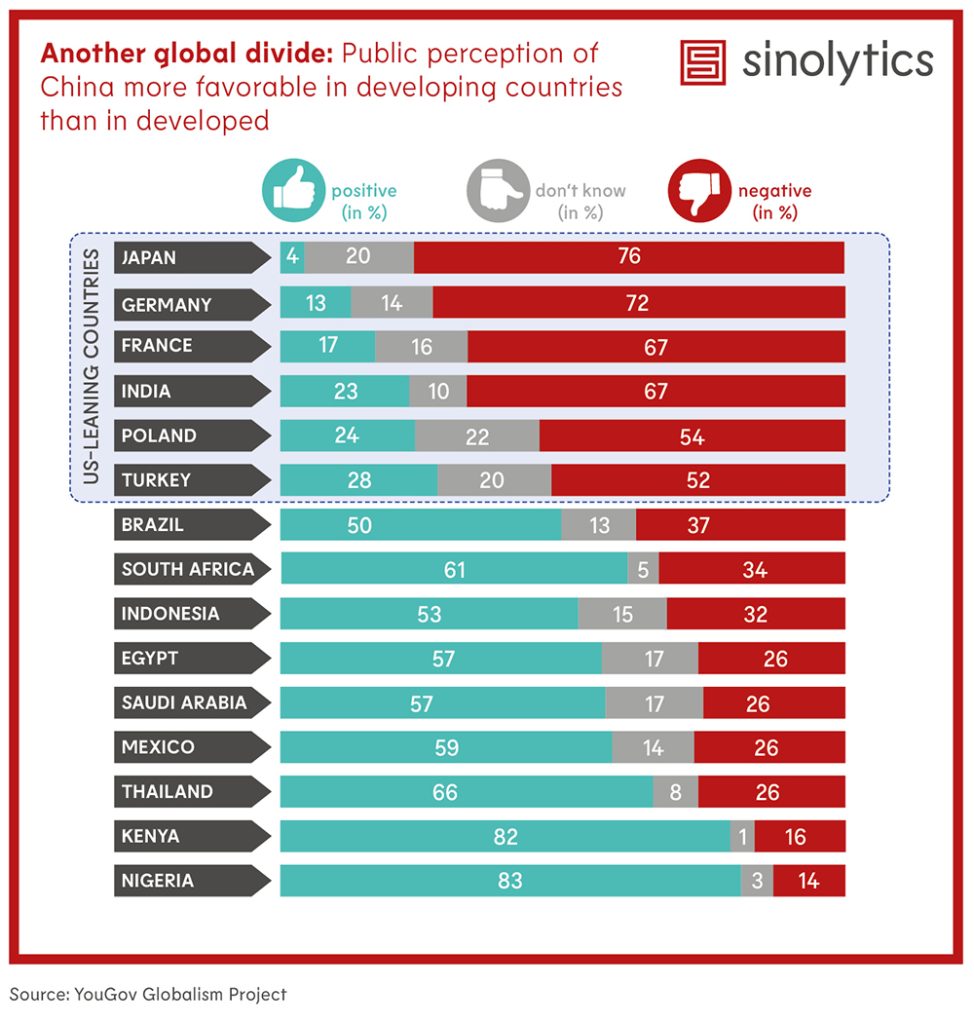
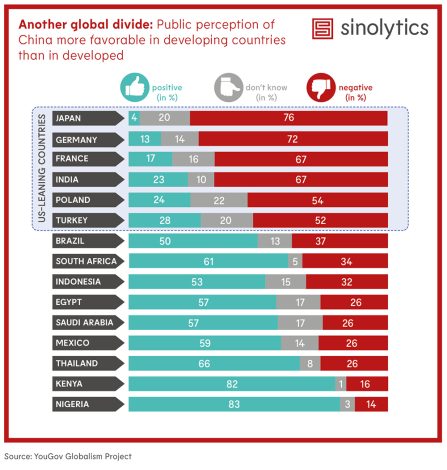
Sinolytics is a European research-based consultancy entirely focused on China. It advises European companies on their strategic orientation and concrete business activities in the People’s Republic.
One day after foreign policy czar Wang Yi announced plans to visit Moscow, the Russian Foreign Ministry is said to have also announced the visit of President Xi Jinping. This was reported by Hong Kong’s South China Morning Post on Tuesday and Russian media, according to AFP. Reuters also reported a statement from the Russian Foreign Ministry on China, but with no mention of a Xi trip. “We are convinced that the potential for Russian-Chinese bilateral cooperation is still far from exhausted,” the agency quoted the ministry as saying. Russia reportedly wants to reach its target of $200 billion in trade between the two countries sooner than expected.
On Monday, the Russian newspaper Vedomosti reported that Wang Yi would visit Russia, without providing a date. The purpose of the visit is unclear but could be related to preparations for a subsequent state visit by Xi, the newspaper wrote, according to Reuters.
The reports of alleged travel plans of top Chinese leaders come at a time of growing speculation that China may be carefully distancing itself from Russia in light of the never-ending Ukraine war. Russian President Vladimir Putin invited Xi to Moscow during a video call in December. At the time, the two had reiterated their cooperation in several areas, including trade and energy. However, the Chinese transcript of the conversation said there was a different approach to their developing relationship. The UK’s Financial Times recently reported on Chinese officials’ distrust of Putin and Russia in a high-profile article.
There was no initial confirmation from Beijing of a possible trip by Xi or Wang. However, China usually confirms trips of top personnel at very short notice. The Russian news agency Ria Novosti tried to get confirmation of Wang Yi’s trip at the regular foreign ministry press conference in Beijing on Monday. AFP asked about Xi on Tuesday. But spokeswoman Mao Ning refused to comment on both days. She added that she was “not familiar” with Wang’s itinerary and had “nothing to say” about Xi’s state visit.
Beijing sharply criticized the Czech Republic’s president-elect Petr Pavel over his phone call with Taiwan’s President Tsai Ing-wen. Pavel had disregarded “China’s red line,” Mao Ning of China’s Foreign Ministry said on Tuesday. The Czech Republic must now take steps to “prevent irreparable damage to relations between China and the Czech Republic,” she said.
Pavel reiterated the Czech Republic’s relations with Taiwan after his phone call with Tsai on Monday. During the conversation, the Taiwanese president again emphasized “the common values of freedom, democracy and human rights,” Taiwan’s official news agency CNA reported.
The Czech Prime Minister Petr Fiala said in response to criticism from the Chinese Foreign Ministry that nothing had changed in the Czech Republic’s policy on China. He said that the Czech Republic continues to respect the one-China principle. As a sovereign state, however, it was up to the Czech Republic “who we call or who we meet,” Fiala stressed on Twitter. Pavel’s predecessor, still-President Milos Zeman, was occasionally criticized for his pro-China stance. fpe
The company Origin Quantum Computing Technology from Anhui has shipped a fully self-developed quantum computer to a client. This was reported by Chinese state media on Monday. This makes China the third country capable of doing so, after Canada and the US.
As the South China Morning Post writes, the “Wuyuan Quantum Computer” was already handed over to an unknown end user a year ago. The technology uses so-called qubits, which instead of 0 and 1 allow a huge number of parallel computing operations through so-called superposition. Experts believe this could change entire industries and shift the geopolitical balances of power. The researchers from Anhui have already announced that an even more powerful quantum computer, named after the legendary monkey king Sun Wukong, will be available “soon”.
Despite growing investments in almost all major industrialized countries, there have been few commercial solutions in the field of quantum computing so far due to technical hurdles. The super-fast computers could prove extremely useful in pharmaceutical research, materials research, optimization processes and model calculations. But military applications are also possible, according to experts from the US Department of Defense, for example, advanced encryption techniques. fpe
The US government may consider cutting Huawei completely off from access to US technology, according to media reports. Some officials in the Biden administration are calling for a ban on all Huawei sales, according to Bloomberg. US chip companies such as Intel and Qualcomm have reportedly been signaled that existing exemptions to supply some products to Huawei will not be renewed, Bloomberg reports, citing anonymous sources. However, a final decision has not yet been made, the Financial Times and the Wall Street Journal reported.
Huawei used to be one of the largest buyers of electronic components. But over the past four years, the United States has been increasingly restricting the company’s access to US technology. Should the reports prove true, all future license requests regarding supplies to Huawei would be rejected. Currently, most current requests for new licenses are stuck in the approval process because of the dispute, according to Bloomberg. China’s foreign office spokeswoman Mao Ning expressed concern about the reports on Tuesday, saying, “We are closely following relevant developments. China firmly opposes the United States’ generalization of the concept of national security, abuse of state power, and unreasonable suppression of Chinese companies.” ck
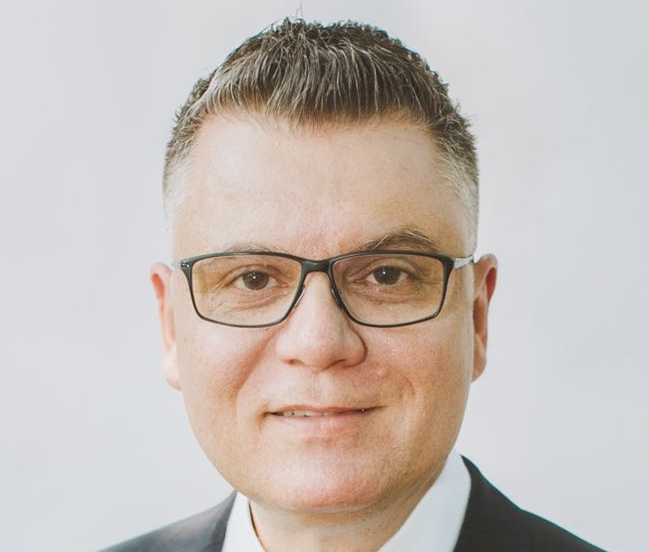
Ralph Koppitz still has to get used to the winter weather in Germany. The Munich native has spent the last 20 years in Shanghai, the once cosmopolitan city that has become increasingly cramped for Koppitz and his family in recent years. A few months ago, he made the decision to return home to the German city of Potsdam.
Koppitz was already drawn to the world during his law studies in Munich. To New York, to Singapore. Koppitz then traveled through China and was particularly fascinated by Beijing. For his legal clerkship, he returned to the city, to the Beijing office of a German law firm. He studied Chinese and was eventually hired. He later moved to Shanghai, where he worked for a major international law firm. For 18 years he headed their Shanghai office, specializing in Chinese corporate and labor law. Over time, he also focused on foreign NGOs in China.
But at some point, Koppitz had enough of the big law firm. In 2020, he joined the small consulting firm “Linie,” which his Chinese wife had founded in 2003. The focus: Company registrations in the greater Shanghai area and residence permits. “My legal advice complements this spectrum very well,” says Koppitz.
And so he, his wife, and their youngest daughter, who went to a German school in Shanghai, probably could have lived peacefully in China for quite a long time – if the pandemic and the government’s harsh restrictions had not gotten in their way. “The main reason we moved back was disappointment with the Shanghai lockdown and our two older children who were studying in Germany,” Koppitz says. They felt virtually out of reach for their parents since the pandemic.
And why Potsdam now? “We found a very good high school here for our youngest, and our middle daughter is studying nearby, in Berlin.” So everything is fine so far, if only it weren’t for the weather. “And the delays of the Deutsche Bahn,” adds Koppitz. He is used to Shanghai’s punctual trains.
It remains to be seen whether he and his family will return to the city where the trains run on time and the sun shines longer. Ralph Koppitz enjoyed being a German lawyer in Shanghai. “In the total of 25 years that I lived in China, the legal system has fundamentally improved,” he sums up. “There is much more transparency and legal certainty.” But when he now looks at his long-time home, Koppitz is mostly concerned about the steps backward on China’s path toward opening. Svenja Napp
Kaye Wiggins is the new financial correspondent for Asia at the Financial Times. For her new post, the journalist is moving from London to Hong Kong.
Dominik Fromm took on the position of Manager Joint Ventures China at the BMW Group in January. Fromm has worked for the Munich-based automaker for 21 years. His main responsibility now lies primarily in sales and aftersales for EVs on the Chinese market.
Is something changing in your organization? Let us know at heads@table.media!
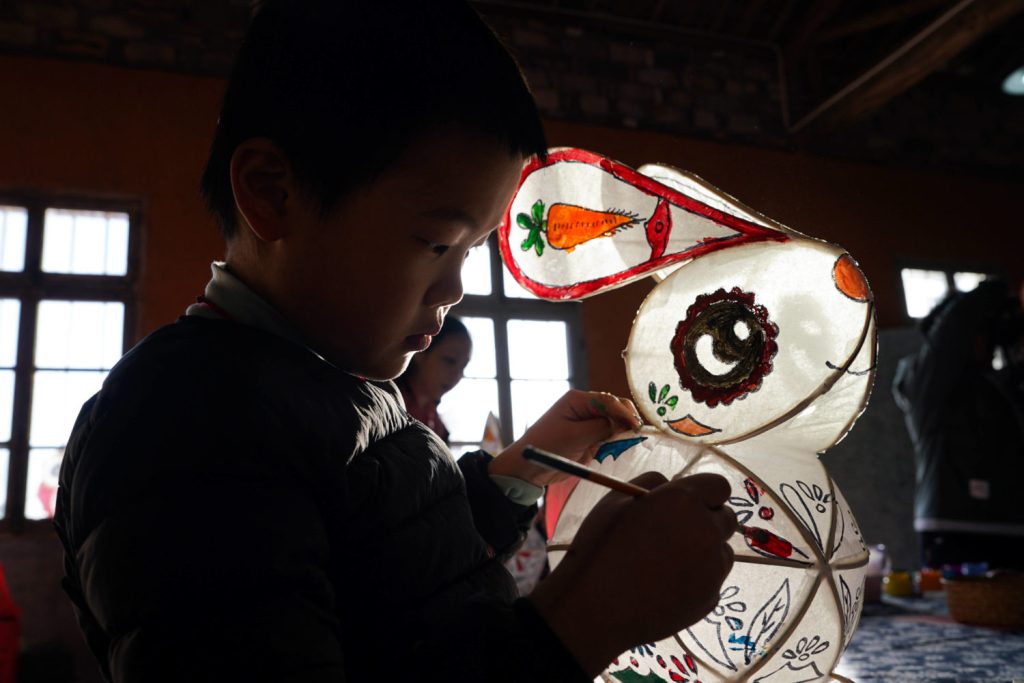
The traditional lantern festival during the full moon marks the end of the 14-day New Year celebrations in China – and this year it falls on February 5. In Hongcun, this boy is painting a matching rabbit lantern for the occasion. The historic merchant villages of Hongcun and Xidi in Anhui are UNESCO World Heritage Sites and popular tourist destinations.
German Chancellor Olaf Scholz has traveled to South America. But not only the Ukraine war accompanies him there, but the geopolitical competition with China, too. His interlocutor Luiz Inácio Lula da Silva, former and new president of Brazil, not only pitched himself and China’s President Xi Jinping as peace brokers with Moscow. He also has an almost outdated optimistic view of the People’s Republic, as Amelie Richter analyses. But China has long since been more strategically independent of individual South American states than it was during Lula’s first presidency.
Taiwan has a new cabinet: The new Prime Minister Chen Chien-jen took office on Tuesday, and along with him some new government members, but mostly familiar faces. Central ministers such as Joseph Wu in the foreign office have kept their posts. This means that Chen Chien-jen promises continuity above all, as David Demes analyzes. Chen is also signaling a sign of stability to international allies.
China has been promoting key sectors and innovations for years. A new study by the Berlin-based China Research Institute Merics, which China.Table has obtained in advance, has analyzed exactly how this is done. Finn Mayer-Kuckuk took a closer look at the study. The study shows that China organizes innovation along chains, where ideas, research results and concrete technologies are forwarded. The focus is on application-related projects that, in the best case, yield something useful.


German Chancellor Olaf Scholz did not expect this move: Brazil’s President Luiz Inácio Lula da Silva has proposed a mediation initiative of his country together with China for an end to the Ukraine war. The left-wing politician offered himself as a mediator for talks with the Ukrainian or Russian president. Or even with China. “Our friends, the Chinese play a very important role,” Lula said at a joint press conference with German Chancellor Olaf Scholz in Brasília. “It’s time for China to get involved.”
The fact that Beijing has not displayed any tendencies to take a mediating role in the war against Ukraine, which has been raging for almost a year now, does not seem to bother Lula in his appeal. France’s President Emmanuel Macron also suggested the People’s Republic of China as a mediator after the G20 summit in Bali and received scorn for this. However, France and Brazil have different approaches toward China.
Lula considers China to be the same partner as it was during his first term in office, which began two decades ago. From 2003 to 2011, Lula was head of the Palácio do Planalto in Brasília. At that time, the Workers’ Party icon was still dealing with Hu Jintao as China’s head of state. So if the “BRICS buddy” Lula now calls on Beijing to act as a mediator, this might at first glance seem more pressing than a voice from the West like Macron. However, Lula could be sorely mistaken about Beijing. Times have changed, both in terms of trade policy and diplomacy.
Xi no longer has to fight the same diplomatic battles in Latin America as he had to a decade ago. Until recently, 15 of the 30 countries in Latin America and the Caribbean had officially recognized Taiwan as an independent country. Now, after years of Beijing’s charm offensive, only 8 countries remain. China has forged free trade agreements with Chile, Costa Rica, Panama and Peru; more than 20 Latin American and Caribbean countries have joined the Belt & Road Initiative (BRI). China’s economic and geopolitical influence in the region has been cemented; Beijing no longer needs to court Brazil.

During Lula’s first term in office, he saw China as an equal partner: Two countries on the fringes of Western-dominated institutions. He was instrumental in founding the BRICS group in 2006, which also includes India, Russia and South Africa. At the end of Lula’s first presidency in 2011, trade between Brazil and China had grown from practically zero to almost $60 billion. China already became Brazil’s most important trading partner in 2009.
And it continued to go uphill. In 2021, the combined value of products exported from Brazil to the People’s Republic alone reached more than $87 billion, an increase of around $20 billion compared to 2020. The number one product: soybeans. Brazil’s top import product from China is mobile phones.
There were some diplomatic strains with Bolsonaro during the Covid-19 pandemic – but they did not negatively affect economic relations. “Both Brazilian and Chinese business people are very pragmatic,” says Brazilian China consultant Thais Moretz. As a matter of fact, Brazil’s exports to China have registered record figures in recent years.
For now, the first days of the ‘second round’ government of President Lula da Silva do not show many changes in his rhetoric compared to the first term, says Moretz, who herself lived in China for several years and now advises Brazilian companies and government agencies. Diversifying exports from Brazil to China, but more technology from China to Brazil – it’s basically the same President Lula da Silva already said almost two decades ago, Moretz explains.
Not the best strategy in her opinion: “I think President Lula da Silva needs to renew his agenda. A lot has changed in these 20 years. I also don’t see the diversification of exports on a business level, especially when it comes to consumer goods.” Moretz explains that Brazilian companies are increasingly producing these directly in China and not exporting them.
Restructuring and expanding the export basis is difficult in general, especially for small and medium-sized Brazilian companies. These companies are lacking the necessary tools for competitiveness. Brazilian brands find it harder than European brands to survive the Guochao (国潮) wave. “The European brands are well known and desired by the Chinese people. But that’s not the case for Brazilian consumer goods,” Moretz says.
However, the main point of discussion these days for Europe is decoupling, whereas it is not a priority for Brazil. The country is much less dependent on just one country for precursors, Moretz explains. Though, she adds that Brazil should pay closer attention to the increasing dependence on the Chinese tech sector.
The free trade agreement between the EU and the Latin American Mercosur countries could help Brazil in this regard. Last week, Lula stressed that he wanted to strike a deal with Europe first and then negotiate a Mercosur-China trade agreement. During his visit, Chancellor Scholz reiterated his wish for a quick ratification of the agreement. He explained that Lula and he agreed that this agreement should be signed quickly. In the meantime, the Mercosur member state Uruguay is already negotiating a bilateral free trade agreement with China. Much to Lula’s displeasure.

Following the poor results of the Democratic Progressive Party (DPP) in the local elections at the end of November, besides resigning from the post of party chair, the pressure on President Tsai Ing-wen to make a fresh start with Taiwan’s new cabinet had been growing. After all, it is a tradition in Taiwan that the government takes political responsibility and the cabinet resigns after election defeats. On Friday, Tsai already presented former Vice President Chen Chien-jen (陳建仁) as the new Premier. Chen is a renowned epidemiologist, professed Catholic and close confidant of the president. The style of his new cabinet shall be “warm and persistent”, the premier-designate said on Friday. Chen follows Tsai’s political line and keeps the majority of the members of the previous government in office.
Over the weekend, Chen gradually announced the names of the most important ministers in a series of Facebook posts. The names of the foreign minister and defense minister in particular had been eagerly anticipated. There had been repeated rumors that Taiwan’s ambassador to Washington, Hsiao Bi-khim, would take over the foreign ministry. On Sunday evening, Chen finally put an end to the rumors: Foreign Minister Joseph Wu (吳釗燮), Defense Minister Chiu Kuo-cheng (邱國正) and Mainland Chinese Affairs Minister Chiu Tai-san (邱太三) will retain their posts in his government. With this, the new Premier sends an important signal for continuity of relations with China and cooperation with Taiwan’s international partners.
A replacement at the top of the Ministry of Defence was considered unlikely from the start. Minister Chiu is tasked with the monumental task of implementing Tsai’s conscription reform by 2024. In late December, the President announced an extension of mandatory military service from four to twelve months.
On Monday, the entire Su cabinet officially resigned. On Tuesday, the official business was handed over to the new Chen government. Overall, Taiwan’s new cabinet is now primarily younger and more female. The percentage of women has increased by 17 percent. Tsai had been criticized in the past for the strong male dominance in her government.
Along with the ministries of economics and labor, the finance ministry, the Overseas Community Affairs Council, the Ocean Affairs Council (responsible for the coast guard, among other things) and the Atomic Energy Agency are now in female hands. The biggest surprise is the new Minister of Finance, Chuang Tsui-yun (莊翠雲). She is expected to deal with the growing inequality in society – for example, by building social housing on government-owned land administered by the Ministry of Finance.
Of the eleven new appointments, only four are actually new. The rest moves up from the second row, for example from the office of a state secretary to the ministerial post. Two of the newcomers have already proven themselves successful DPP mayors. Their job in the cabinet is to ensure that the government does not lose sight of public opinion.
The former mayor of the megacity of Taoyuan, Cheng Wen-tsan (鄭文燦), becomes Chen Chien-jen’s deputy. Cheng’s track record after eight years in office was generally positive. In the mayor ranking of 2022, he still ended up in second place. For a long time, he was seen as the DPP’s hope. However, a plagiarism scandal thwarted his ambitions for higher office at the end of last year. The job as deputy premier now offers him the chance to redeem himself politically.
The former mayor of the port city of Keelung, Lin Yu-chang (林右昌), becomes minister of the interior. Internal security had been a major campaign issue in the previous local elections, and former Minister of Interior Hsu Kuo-yung (徐國勇) officially resigned shortly after the election for health reasons. At 51, Lin is now one of the youngest members of the new cabinet.
Su Tseng-chang became the longest-serving premier since Taiwan’s democratization in 1996 and is said to still harbor ambitions for the office of president.
In addition to the Executive Yuan, Taiwan’s cabinet, there is also a move-up at the presidential palace. The former Minister of Transport and Mayor of Taichung, Lin Chia-lung (林佳龍), becomes the new Secretary General of the Presidential Office.
China has developed a system to drive the creation of know-how and its practical application using standardized processes. In this way, the activities of government agencies and private actors are effectively interlinked in an “innovation chain” to quickly transform individual ideas into mass production. These processes are explained by the Berlin-based China Research Institute Merics in a new research paper entitled “Controlling the Innovation Chain: China’s Strategy to become a Science & Technology Superpower”. Authors are Jeroen Groenewegen-Lau and Michael Laha. The report will be published on Thursday and is already available to China.Table.
Technological power is considered the key to geostrategic independence. China has risen to become a serious major power primarily through the development of manufacturing technology and, in the second phase, also through its own product developments. The final rise to the top of the world now depends on the consistent development of technical skills.
The urgency of an effective innovation policy became clear after 2018, as the Merics study points out. The United States demonstrated under then-President Donald Trump that it can cut China off from key technologies. So the ability to weather conflicts – over Taiwan, for example – depends on being technologically self-reliant. This is at least the thinking of the actually more politically than economically motivated leadership under President Xi Jinping.
The Communist Party is thus again the central actor here. According to the study, the state has expanded its influence since 2016. The system has become more hierarchical, while the headquarters in Beijing has tightened its control. National research institutions play a greater role. All this will also impact cooperation partners in Europe, Merics speculates. Scientists here are under pressure to question the access of the Chinese state to joint research results.
After a series of reforms, innovation in China has been organized along “chains”. Ideas, research results and concrete techniques are passed along these chains. At the end, there is usually a product.
What is particularly important to the state is that the individual chain links are properly connected. These are mainly the researchers, the laboratories and the industrial development zones.
Here, too, there are hierarchies. For example, laboratories are divided into
Research funding, for example, distinguishes between
So here, too, the party-state planners have neatly sorted all the elements into boxes and interlinked them. But their success so far proves the rather rigid planning approach right.


Sinolytics is a European research-based consultancy entirely focused on China. It advises European companies on their strategic orientation and concrete business activities in the People’s Republic.
One day after foreign policy czar Wang Yi announced plans to visit Moscow, the Russian Foreign Ministry is said to have also announced the visit of President Xi Jinping. This was reported by Hong Kong’s South China Morning Post on Tuesday and Russian media, according to AFP. Reuters also reported a statement from the Russian Foreign Ministry on China, but with no mention of a Xi trip. “We are convinced that the potential for Russian-Chinese bilateral cooperation is still far from exhausted,” the agency quoted the ministry as saying. Russia reportedly wants to reach its target of $200 billion in trade between the two countries sooner than expected.
On Monday, the Russian newspaper Vedomosti reported that Wang Yi would visit Russia, without providing a date. The purpose of the visit is unclear but could be related to preparations for a subsequent state visit by Xi, the newspaper wrote, according to Reuters.
The reports of alleged travel plans of top Chinese leaders come at a time of growing speculation that China may be carefully distancing itself from Russia in light of the never-ending Ukraine war. Russian President Vladimir Putin invited Xi to Moscow during a video call in December. At the time, the two had reiterated their cooperation in several areas, including trade and energy. However, the Chinese transcript of the conversation said there was a different approach to their developing relationship. The UK’s Financial Times recently reported on Chinese officials’ distrust of Putin and Russia in a high-profile article.
There was no initial confirmation from Beijing of a possible trip by Xi or Wang. However, China usually confirms trips of top personnel at very short notice. The Russian news agency Ria Novosti tried to get confirmation of Wang Yi’s trip at the regular foreign ministry press conference in Beijing on Monday. AFP asked about Xi on Tuesday. But spokeswoman Mao Ning refused to comment on both days. She added that she was “not familiar” with Wang’s itinerary and had “nothing to say” about Xi’s state visit.
Beijing sharply criticized the Czech Republic’s president-elect Petr Pavel over his phone call with Taiwan’s President Tsai Ing-wen. Pavel had disregarded “China’s red line,” Mao Ning of China’s Foreign Ministry said on Tuesday. The Czech Republic must now take steps to “prevent irreparable damage to relations between China and the Czech Republic,” she said.
Pavel reiterated the Czech Republic’s relations with Taiwan after his phone call with Tsai on Monday. During the conversation, the Taiwanese president again emphasized “the common values of freedom, democracy and human rights,” Taiwan’s official news agency CNA reported.
The Czech Prime Minister Petr Fiala said in response to criticism from the Chinese Foreign Ministry that nothing had changed in the Czech Republic’s policy on China. He said that the Czech Republic continues to respect the one-China principle. As a sovereign state, however, it was up to the Czech Republic “who we call or who we meet,” Fiala stressed on Twitter. Pavel’s predecessor, still-President Milos Zeman, was occasionally criticized for his pro-China stance. fpe
The company Origin Quantum Computing Technology from Anhui has shipped a fully self-developed quantum computer to a client. This was reported by Chinese state media on Monday. This makes China the third country capable of doing so, after Canada and the US.
As the South China Morning Post writes, the “Wuyuan Quantum Computer” was already handed over to an unknown end user a year ago. The technology uses so-called qubits, which instead of 0 and 1 allow a huge number of parallel computing operations through so-called superposition. Experts believe this could change entire industries and shift the geopolitical balances of power. The researchers from Anhui have already announced that an even more powerful quantum computer, named after the legendary monkey king Sun Wukong, will be available “soon”.
Despite growing investments in almost all major industrialized countries, there have been few commercial solutions in the field of quantum computing so far due to technical hurdles. The super-fast computers could prove extremely useful in pharmaceutical research, materials research, optimization processes and model calculations. But military applications are also possible, according to experts from the US Department of Defense, for example, advanced encryption techniques. fpe
The US government may consider cutting Huawei completely off from access to US technology, according to media reports. Some officials in the Biden administration are calling for a ban on all Huawei sales, according to Bloomberg. US chip companies such as Intel and Qualcomm have reportedly been signaled that existing exemptions to supply some products to Huawei will not be renewed, Bloomberg reports, citing anonymous sources. However, a final decision has not yet been made, the Financial Times and the Wall Street Journal reported.
Huawei used to be one of the largest buyers of electronic components. But over the past four years, the United States has been increasingly restricting the company’s access to US technology. Should the reports prove true, all future license requests regarding supplies to Huawei would be rejected. Currently, most current requests for new licenses are stuck in the approval process because of the dispute, according to Bloomberg. China’s foreign office spokeswoman Mao Ning expressed concern about the reports on Tuesday, saying, “We are closely following relevant developments. China firmly opposes the United States’ generalization of the concept of national security, abuse of state power, and unreasonable suppression of Chinese companies.” ck

Ralph Koppitz still has to get used to the winter weather in Germany. The Munich native has spent the last 20 years in Shanghai, the once cosmopolitan city that has become increasingly cramped for Koppitz and his family in recent years. A few months ago, he made the decision to return home to the German city of Potsdam.
Koppitz was already drawn to the world during his law studies in Munich. To New York, to Singapore. Koppitz then traveled through China and was particularly fascinated by Beijing. For his legal clerkship, he returned to the city, to the Beijing office of a German law firm. He studied Chinese and was eventually hired. He later moved to Shanghai, where he worked for a major international law firm. For 18 years he headed their Shanghai office, specializing in Chinese corporate and labor law. Over time, he also focused on foreign NGOs in China.
But at some point, Koppitz had enough of the big law firm. In 2020, he joined the small consulting firm “Linie,” which his Chinese wife had founded in 2003. The focus: Company registrations in the greater Shanghai area and residence permits. “My legal advice complements this spectrum very well,” says Koppitz.
And so he, his wife, and their youngest daughter, who went to a German school in Shanghai, probably could have lived peacefully in China for quite a long time – if the pandemic and the government’s harsh restrictions had not gotten in their way. “The main reason we moved back was disappointment with the Shanghai lockdown and our two older children who were studying in Germany,” Koppitz says. They felt virtually out of reach for their parents since the pandemic.
And why Potsdam now? “We found a very good high school here for our youngest, and our middle daughter is studying nearby, in Berlin.” So everything is fine so far, if only it weren’t for the weather. “And the delays of the Deutsche Bahn,” adds Koppitz. He is used to Shanghai’s punctual trains.
It remains to be seen whether he and his family will return to the city where the trains run on time and the sun shines longer. Ralph Koppitz enjoyed being a German lawyer in Shanghai. “In the total of 25 years that I lived in China, the legal system has fundamentally improved,” he sums up. “There is much more transparency and legal certainty.” But when he now looks at his long-time home, Koppitz is mostly concerned about the steps backward on China’s path toward opening. Svenja Napp
Kaye Wiggins is the new financial correspondent for Asia at the Financial Times. For her new post, the journalist is moving from London to Hong Kong.
Dominik Fromm took on the position of Manager Joint Ventures China at the BMW Group in January. Fromm has worked for the Munich-based automaker for 21 years. His main responsibility now lies primarily in sales and aftersales for EVs on the Chinese market.
Is something changing in your organization? Let us know at heads@table.media!

The traditional lantern festival during the full moon marks the end of the 14-day New Year celebrations in China – and this year it falls on February 5. In Hongcun, this boy is painting a matching rabbit lantern for the occasion. The historic merchant villages of Hongcun and Xidi in Anhui are UNESCO World Heritage Sites and popular tourist destinations.
